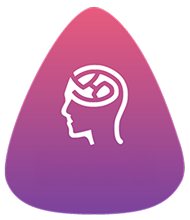Write down one limiting belief you hold at work and cross it out—replace it with a neutral fact you can act on today.
Say aloud a strength of yours that disproves a belief holding you back. Repeat it with confidence.
Choose a simple task you’ve avoided due to doubt—start it and set a ten-minute timer to stay focused.
Put a sticky note on your screen with a positive counter-belief. Read it before every work task today.
Swap negative self-talk with a “What if I can?” statement—test it in a safe, low-risk situation.
Visualize yourself succeeding at something you believe you can’t do—notice how it feels and what changes.
Journal about a recent decision at work where doubt held you back—how would confidence have changed it?
Write the origin story of your strongest limiting belief at work—where did it start and how has it shaped your choices?
Reflect on three colleagues who pushed past limits—what beliefs helped them break through fear?
Note one missed workplace opportunity caused by a limiting belief—how would you approach it differently now?
Describe your internal critic at work—what voice does it use, and how rational is it when you step back?
List beliefs you hold about your role or success at work—highlight those that sound like permanent limits.
Say yes to one task you’d normally reject out of self-doubt—track what happens after you complete it.
Share a bold idea in a meeting—even if you fear it’s not “smart enough.” Reflect on the outcome.
Offer to lead or present something you’d usually avoid—focus on showing up, not perfection.
Set a micro-goal that challenges a limiting belief—complete it even if it feels uncomfortable.
Ask for something you need but were hesitant to request—support, feedback, or resources.
Rewrite your LinkedIn bio with one ambitious phrase that challenges a limiting belief.
Ask a trusted colleague what strengths you bring at work that you often underestimate in yourself.
Share one limiting belief with a peer—ask if they’ve ever thought the same and how they overcame it.
Request feedback after a meeting where you spoke up despite fear—compare it with how you felt inside.
Ask someone to share a time they doubted themselves at work and still pushed through—what helped?
Record three positive comments you received this week—note which ones surprised you the most.
Create a feedback loop with a peer to challenge limiting beliefs you both carry at work.
Rewrite “I’m not creative” as “How might I be creative?”—apply it to one work task today.
Turn “I always fail at…” into “I’m still learning how to…”—apply it to a current project.
Reframe a past failure as data—note what it taught you for your next project.
Translate “I’m not ready” into “I’m preparing”—take one step that brings you closer.
When thinking “I can’t,” ask “Who says?”—challenge it by testing one task today.
Change “I never…” to “I haven’t yet…”—apply it to one stalled goal at work.
Track when your inner voice uses “always” or “never” at work—what triggered it, and how accurate was it?
Observe people you admire at work—how do they self-talk after mistakes or risks?
Catch yourself mid-thought when hesitating—what belief sits under that pause?
Listen for limiting beliefs in meetings—do you hear echoes of your own self-talk?
Note your physical cues when doubting yourself—tension, breath, posture—what belief drives them?
Notice how quickly you dismiss compliments—what belief might be behind that?


 Give Feedback
Give Feedback
